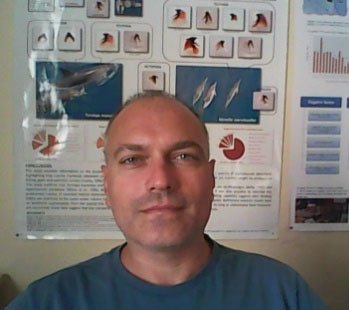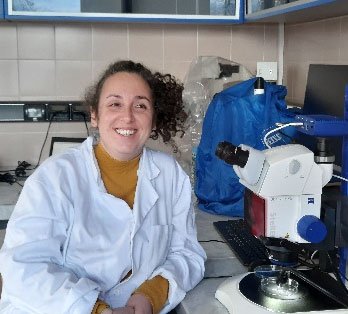The first photographic and descriptive guide on the morphology of the beaks from Mediterranean cephalopods. The Atlas illustrates 42 species of Mediterranean cephalopods, with images (210 photos) and taxonomic description of the upper and lower beaks. This illustrative guide has been designed as an important tool for supporting taxonomical and ecological studies on cephalopods from Mediterranean Sea. A consultation tool accessible to all enthusiast of these marine molluscs, including taxonomists and researchers as well as students approaching the study of Cephalopoda.
Biografia degli autori
Franco Andaloro

Pietro Battaglia

and management. Special attention is also given to Mediterranean mesopelagic and bathypelagic species. Other research topics: age and growth, taxonomy, trophic ecology, marine litter, biodiversity in marine habitats, non-indigenous species.
Pierpaolo Consoli

the relationship between fish assemblages and natural/artificial habitats by means of visual census techniques, protected species and habitats, feeding ecology of large pelagic fish, the effects
of protection measures on fish assemblage in MPAs, the impact of marine litter on marine habitats and species.
Francesco Longo

fishing, collection of biological, socio-economics, catch and effort data. He is also a skilled in the stakeholders’ involvement in the fisheries management decision-making process. Other research topics include age, growth and taxonomy of cephalopod and fish species.
Danilo Malara

Cristina Pedà

taxonomy as well as in the identification of cephalopod beaks in stomach contents. She carries out studies on the impacts of marine litter on marine environment, trophic web and biodiversity. Other
research topics are the studies of artisanal fisheries and fishery management.
Teresa Romeo

particular skills on biological, ecological and ecotoxicological aspects of large pelagic fish. She is also expert in sustainable fishing, fishery resources and management. Other research topics include marine litter, biodiversity and hydrothermal habitats.
Maria Giulia Stipa

biology and ecology. She gained experience in the trophic ecology of large pelagic fish (swordfish, bluefin tuna and Mediterranean spearfish) and in the taxonomic identification of cephalopod beaks found in stomachs.












